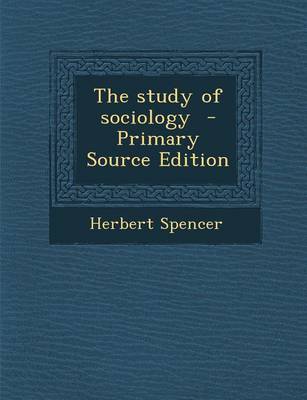Works by & About Herbert Spencer
7 total works
'Spencer regarded the Principles of Ethics - of which The Data of Ethics and Justice constitutes parts one and four respectively - as the culmination and crowning achievement of the System of Synthetic Philosophy, to which the other volumes on biology, psychology, and sociology had been mere preliminaries' - Michael Taylor, from the Introduction. In Justice Spencer revisits the Law of Equal Freedom which first appeared in Social Statics and forms the keystone of social morality.
In this volume Spenser presents his formula of evolution, demonstrating that the whole of the cosmos, from the nebulae to moral sentiments, obeyed the same general laws. The theory offers a resolution of the most pressing debates in Victorian intellectual life: the contest between theism and atheism and proposed a solution to the dispute between Mill and Hamilton over the nature of the ultimate reality.
The themes of this volume are the politics of nonconformist radicalism, the universality of natural law and the existence of a moral sense. It also includes Spencer's vision of a pure democracy, in which the vote was available to all, regardless of age, sex or property or qualification.
This volume consists of a collection of articles published by Spencer in leading Victorian periodicals, such as The Westminster Review, The Fortnightly Review and Mind. The wide range of subjects explored includes science, philosophy, aesthetics, ethics, psychology and politics.
Spencer's popular account of his leading sociological doctrines. Its publication marked the emergence of Spencer as the popular philosopher of the Victorian age. It was a highly influential work in terms of the impetus it gave to the academic pursuit of the new science of sociology and it also played an important role in shaping the outlook of many thoughtful lay persons in the Victorian reading public.
Political Institutions formed Part Five of The Principles of Sociology, which deals with various social and political institutions. Spencer distinguishes between two main types of society: the militant resting on the basis of status, and the industrial resting on a basis of contract.
v. 4
The Principles of Psychology was the first of Spencer's works to bring his name to prominence, not least by drawing him into the extended epistemological debate with John Stuart Mill. The Principles exercised an important influence on the following generation of psychologists, including William James, one of the pioneers of experimental psychology, and neurologist Hughlings Jackson.





